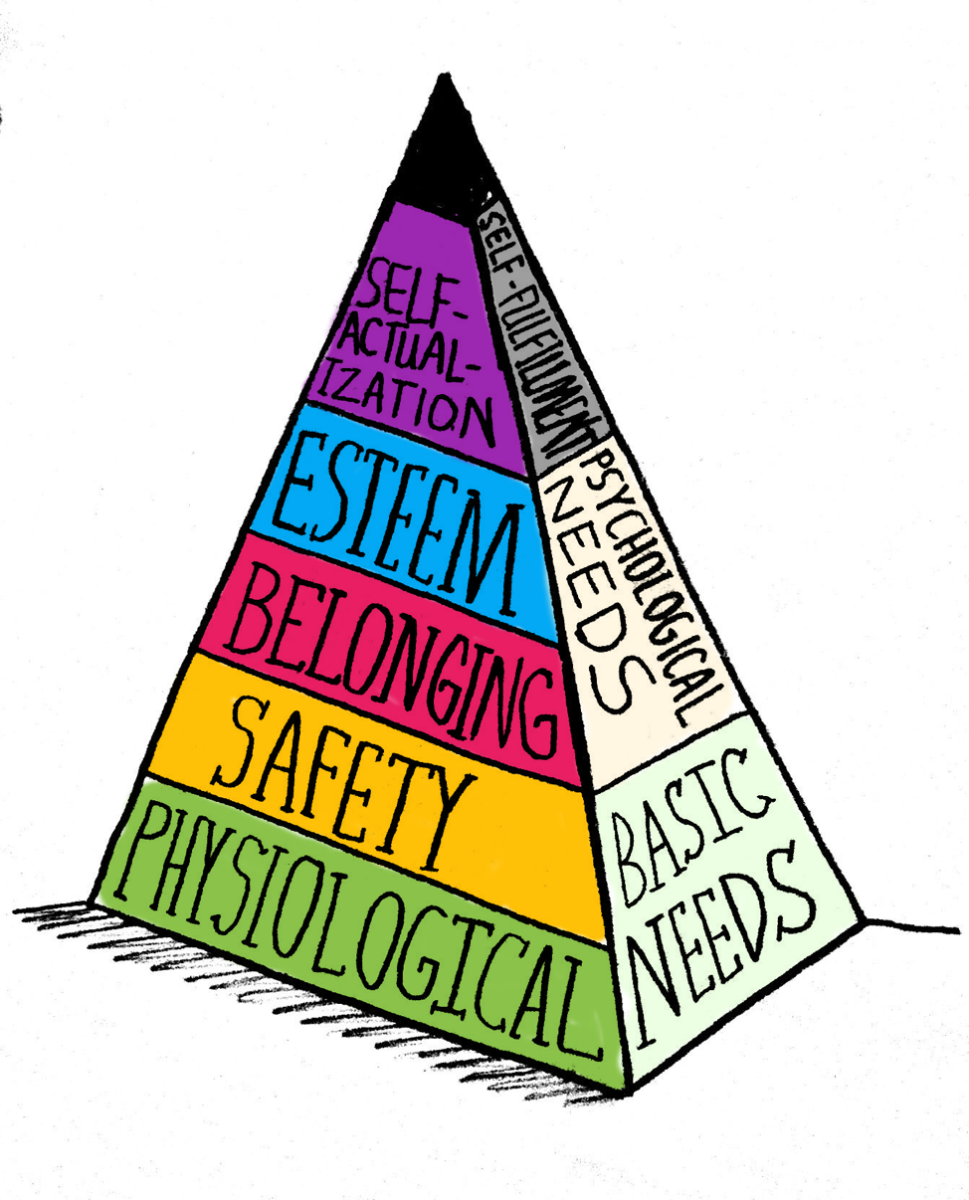By Donner Rizzo-Banks, contributing writer
Today, many of us woke up after a good sleep, had a good (alright) breakfast at Burwell, said hi to a few friends, checked Instagram, checked the Snapchat stories from yesterday and went about our day as normal, attending class and talking about the game last weekend or the fact that somehow all the professors managed to throw tests at us in the same week.
When it comes to our needs, especially as Maslow defined them, you’d think we were pretty well met.
You’d be wrong.
Maslow’s Hierarchy of Needs was an idea first presented in 1943 by American psychologist Abraham Maslow. Maslow established levels of need that had to be met before the pinnacle,, “self-actualization,” could be achieved. The needs are physiological, safety, belonging and esteem.
Since then, the world has changed drastically—and our needs along with it.
With the advent of the internet and the new social structure created by it, our needs must be updated to fit the times. While physical needs remain the same (food, water, shelter and rest) many of our safety and belonging needs now have another layer, and that’s not to mention how drastically our esteem needs have increased.
Safety no longer means just “protection from physical dangers.” Now, we also require a freedom from the fear of persecution as a part of our safety. Because of social media and the eternal nature of the internet, reputation has become far more significant. Damage to that reputation is sometimes more dangerous than damage to the self in terms of lasting consequences.
Belonging is also now extended beyond the physical. Belonging to communities, both in person and online has become central to our well-being in the modern world. For some, belonging to online communities has replaced traditional interactions entirely.
And then there’s esteem. All of us are constantly berated by texts and photos and stories and opinions—just snapshots of life that constantly make us re-evaluate our own. We’re given input on just about everything—except how to ignore it, how to move past the echo-chamber that pushes the new onto us.
This is not to say that everyone out there is in a state of constant suffering. However, it’s important to recognize where all of us are falling short, where we’re not achieving what we want, not working in jobs we want and not living the way we want.
And why.
In 2017, Author Jean Twenge wrote a book titled iGen, which suggests a connection between smart-phones and a new wave of kids and adults with all kinds of mental issues.
We can see evidence of this every day.
But it’s important to recognize that social media hasn’t created new problems, or deficiencies in newer generations. Instead, it has deepened and extended our interpersonal needs, making Maslow’s end goal of “self-actualization” more difficult for our generation to reach.
It’s up to us, as students, to work collectively to achieve this goal. And not just for ourselves, but also for our beliefs and our world. Only when our needs are met, can we truly make any progress.
And it comes down to you. Before you check Instagram tomorrow, check on your friends first. Before you watch some Snapchat story, learn someone’s personal story. Before you ‘add friends,’ introduce yourself to someone new. Before you post something, say something. It starts with compassion.
Maybe in the small ways you help those in need, you’ll find you need someone too.



























